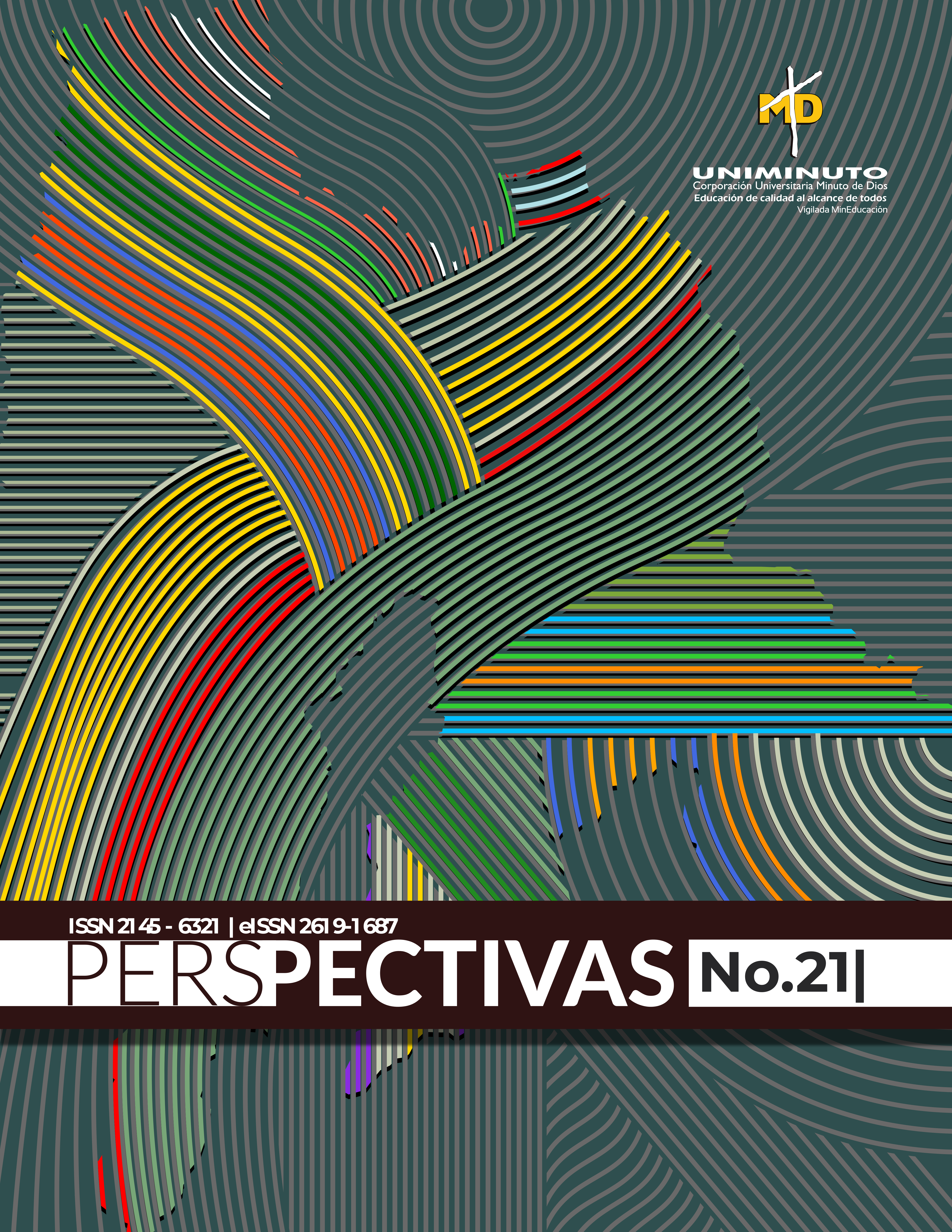El juego como mediación pedagógica para la transformación del pensar.
Barra lateral del artículo
Cómo citar
Altmetrics
Detalles del artículo

Esta obra está bajo una licencia internacional Creative Commons Atribución 4.0.
Contenido principal del artículo
Resumen
La presente investigación se basó en la construcción de una secuencia didáctica fundamentada en el juego, la cual logró ser una mediación pedagógica para transformar el pensar y la interacción de los estudiantes con diversas barreras para el aprendizaje y la comunidad educativa que los rodea. Esta propuesta se desarrolló en el grado quinto de la Institución Rural Departamental El Salitre sede el Hato, para lograr esta transformación del pensar se siguieron estos pasos: a) identificar las percepciones de los estudiantes de quinto grado en relación al proceso de inclusión implementado por el colegio; b) diseñar una secuencia didáctica por medio del juego para transversalizar los procesos de inclusión, aplicándola en el aula; c) analizar las nuevas percepciones de los estudiantes de quinto grado, en relación a los procesos de inclusión mediados por el juego.
Los objetivos propuestos se desarrollaron bajo un corte cualitativo de tipo investigación-acción-participación, empleando instrumentos como la entrevista estructurada a la docente titular y dos docentes de apoyo, los estudiantes y padres de familia, la observación y la implementación de secuencias didácticas a los estudiantes de grado quinto de la IERD el Salitre sede el Hato. Determinando de esta forma las concepciones de los estudiantes con relación a los procesos de inclusión y como el juego puede transformarlas.
Referencias
Barreto Garzón, J. (2019). La investigación como inclusión educativa con sentido social. Revista Perspectivas, (11), 90-94. https://revistas.uniminuto.edu/index.php/Pers/article/view/1814
Bernal, A. (2016). Percepciones sociales sobre la danza en educación inclusiva. Corporación Universitaria Iberoamericana. Facultad de Ciencias Humanas y Sociales. https://repositorio.ibero.edu.co/bitstream/001/356/1/Percepciones%20sociales%20sobre%20danza%20en%20la%20educaci%C3%B3n%20inclusiva.pdf.pdf
Colmenares, A. y Piñero, M. A. (2008). La investigación acción. Una herramienta metodológica heurística para la comprensión y transformación de realidades y prácticas socio-educativas. Laurus, 14,(27), 96-114. https://www.redalyc.org/pdf/761/76111892006.pdf
Ley estatutaria 1618 de 2013. Por medio de la cual se establecen las disposiciones para garantizar el pleno ejercicio de los derechos de las personas con discapacidad. D. O. n.° 48.717 27 de febrero de 2013.
Ministerio de Educación Nacional de Colombia. (2015). Derechos básicos de aprendizaje (DBA). Recuperado de: http://aprende.colombiaaprende.edu.co/es/siemprediae/107746
Ministerio de Educación Nacional. (2017). Decreto 1421 de agosto 29 del 2017. Actualizado: 15 de febrero de 2019. Por el cual se reglamenta en el marco de la educación inclusiva la atención educativa a la población con discapacidad. https://www.mineducacion.gov.co/1759/w3-article-381928.html?_noredirect=
Toasa, J. y Yañez, J. Y. (2017). Espacios recreativos y el rendimiento del proceso de la enseñanza aprendizaje de los estudiantes de educación media de la Unidad Educativa Isabel la Católica del cantón Píllaro provincia, Tungurahua. (Tesis de grado, Universidad Técnica de Ambato). http://repositorio.uta.edu.ec/jspui/handle/123456789/26523

